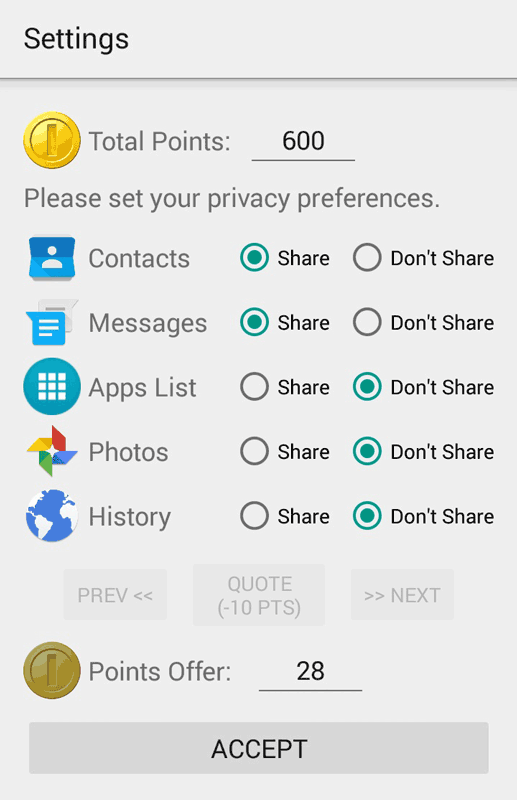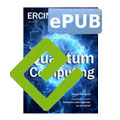by Tim Baarslag (CWI)
Computers that negotiate on behalf of humans hold great promise for the future and will even become indispensable in emerging application domains such as the smart grid, autonomous driving, and the Internet of Things. An important obstacle is that in many real-life settings, it is impossible to elicit all information necessary to be sensitive to the individual needs and requirements of users. This makes it a lot more challenging for the computer to decide on the right negotiation strategy; however, new methods are being created at CWI that make considerable progress towards solving this problem.
Imagine a system that helps a group of friends decide on a holiday destination based on their individual preferences about cultural activities, costs, and flight duration. After that, the system contacts a number of travel operators to negotiate the best hotel and airline deal and proposes a joint holiday schedule. This is what researchers believe we can one day expect from the research field of automated negotiation: a domain of mathematics and computer science that designs algorithms that can negotiate with people and among computerised systems. As part of the NWO Innovational Research Incentives Scheme Veni and the EU project Grid-Friends, CWI is developing technology that can help computers get the best deal for users, even when their preferences are not fully specified.
The field of automated negotiation is fueled by a number of benefits that computerised negotiation can offer, including better (win-win) and faster deals, and reduction costs, stress and cognitive effort on the part of users [1]. Autonomous negotiation technology might even play an indispensable role in real-world applications where the human scale is simply too slow and expensive. For instance, with the world-wide deployment of the smart electrical grid and the must for renewable energy sources, flexible devices in our household will soon (re-)negotiate complex energy contracts automatically. Another example is the rise of the Internet of Things (IoT), which will introduce countless smart, interconnected devices that autonomously negotiate the usage of sensitive data and make trade-offs between privacy concerns, price, and convenience. In such settings, the agent can help represent users in complex and constantly ongoing negotiations in an automated manner.
However, one of the key challenges in designing a successful automated negotiator is that in real-life settings, only limited information is available about the user and other parties. Users are often unwilling or unable to fully specify their preferences to a negotiation system; as a consequence, automated negotiators are required to strike deals with very limited available user information. Recently, we investigated such negotiations in two different domains: privacy negotiations and smart grid trading.
Together with The University of Southampton and The Massachusetts Institute of Technology, we are working on new interaction mechanisms for achieving mutually beneficial agreements, i.e., negotiation, as a more flexible interaction paradigm for meaningful consent towards data sharing and permission management [3]. The aim is to address the inadequacy of current interaction mechanisms for handling data requests and obtaining consent, such as cookie notices and permission pop-ups, which fail to align consumer choices with their privacy preferences. The hope is to provide users with a more granular and iterative permission model than current take-it-or-leave it approaches. The main catalyst for improvement is a new querying model that can elicit preference information at the right time based on information theoretical models from search theory. The first results from our lab study show that users are able and willing to share significantly more of their personal data when offered the benefits of negotiation, while maintaining the same level of satisfaction with their sharing decisions. Users adopt strategies in which they explore around their desired permission set for a more nuanced negotiation that better aligns with their privacy preferences.

Figure 1: What if we could negotiate our app permissions?
As a second line of research, we explore automated negotiations within the smart electrical grid as part of the Grid-Friends project, which is coordinated by CWI in cooperation with Fraunhofer-ITWM. The Grid-Friends team is currently developing efficient algorithms that can be used for user-adaptable energy management systems within a smart grid cooperative of homeowners. We developed an optimal and tractable decision model based on adaptive utility elicitation [2] that can find the point of diminishing returns for improving the model of user preferences. Our framework provides an extensible basis for interactive negotiation agents and is scheduled to be put in practice in 2018 within a household community in Amsterdam.
Collaborative work is currently being undertaken to extend this research further. We are organising a yearly automated negotiation competition (ANAC) [L1, L2] where uncertain preferences will act as a novel challenge for the negotiation research community. Other future work will include personalised assistants (including for travel), autonomous driving, and making meaningful and dynamic consent workable at the Internet of Things scale.
This work is part of the Veni research programme with project number 639.021.751, which is financed by the Netherlands Organisation for Scientific Research (NWO). This work is supported by a grant from the ESPRC for Meaningful Consent in the Digital Economy project (EP/K039989/1). The research has received funding through the ERA-Net Smart Grids Plus project Grid-Friends, with support from the European Union’s Horizon 2020 research and innovation programme.
References:
[1] T. Baarslag, et al.: “Computers That Negotiate on Our Behalf: Major Challenges for Self-sufficient, Self-directed, and Interdependent Negotiating Agents”, AAMAS 2017 Workshops Visionary Papers, Lecture Notes in Computer Science. Springer International Publishing, Cham, 2017.
[2] T. Baarslag and M. Kaisers: “The value of information in automated negotiation: A decision model for eliciting user preferences”, in Proc. of the 16th Conf. on Autonomous Agents and MultiAgent Systems, AAMAS’17, p. 391-400, Richland, SC, 2017. International Foundation for Autonomous Agents and Multiagent Systems. http://dl.acm.org/citation.cfm?id=3091125.3091185
[3] T. Baarslag, Alper T. Alan, Richard C. Gomer, Ilaria Liccardi, Helia Marreiros, Enrico H. Gerding, and M.C. Schraefel.et al.: “Negotiation as an interaction mechanism for deciding app permissions”, in Proc. of the 2016 CHI Conference: Extended Abstracts on Human Factors in Computing Systems, CHI EA’16, p. 2012-2019, New York, NY, USA, 2016. ACM. http://doi.acm.org/10.1145/2851581.2892340
Please contact:
Tim Baarslag, CWI, The Netherlands
+31(0)20 592 4019,











